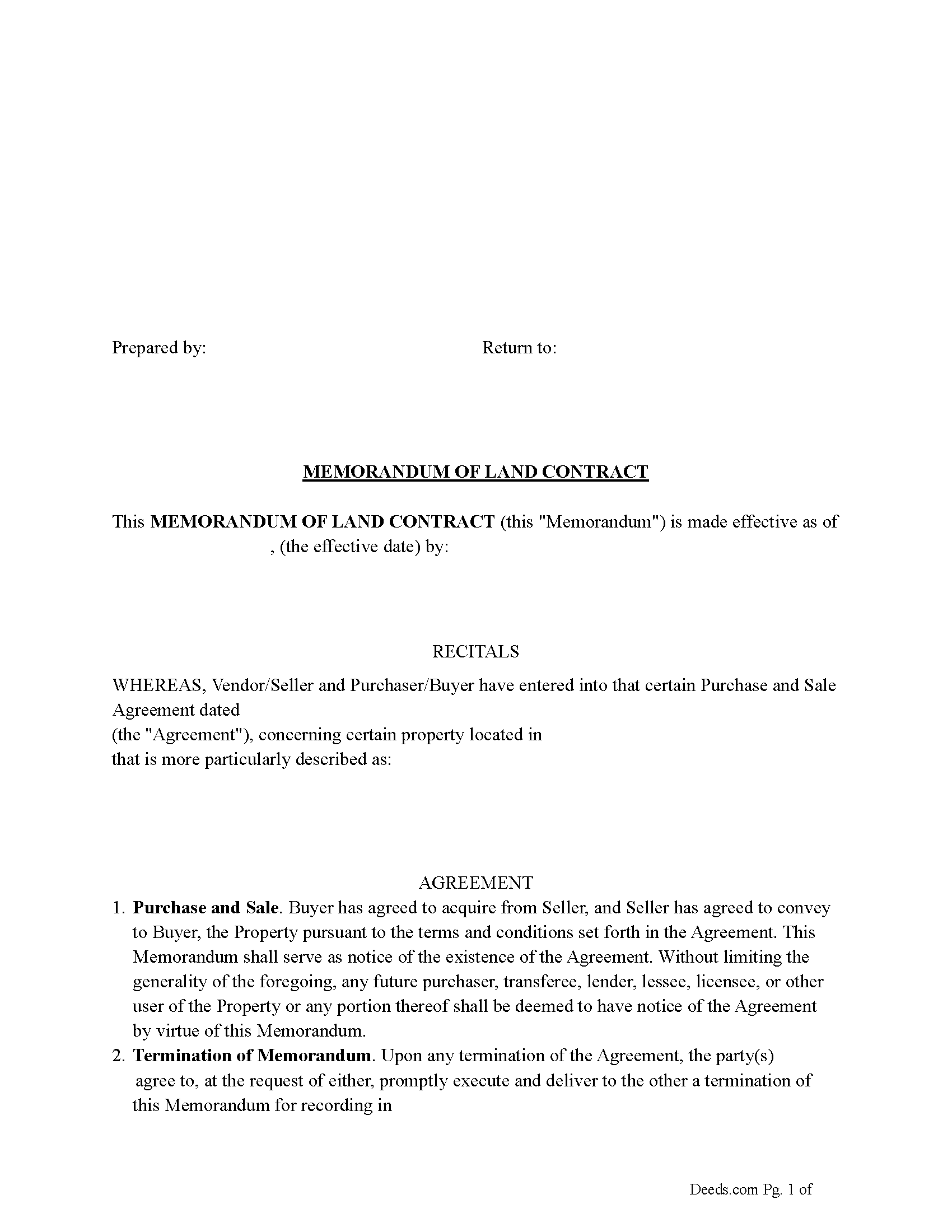Nebraska Memorandum of Land Contract Forms

Nebraska Memorandum of Land Contract Overview

How to Use This Form
- Select your county from the list on the left
- Download the county-specific form
- Fill in the required information
- Have the document notarized if required
- Record with your county recorder's office
In Nebraska, recording a Memorandum of Land Contract instead of the full land contract, contract for deed or purchase and sale agreement of real property
is a strategic decision with several legal and practical advantages. Here’s a breakdown of why many parties choose to record a memorandum rather than the entire contract for deed:
Advantages of Recording a Memorandum Instead of the Full Contract
1. Protects Privacy
A full land contract contains sensitive terms: purchase price, interest rate, payment schedule, remedies for default, etc.
A memorandum contains only basic identifying information (parties, legal description, date of agreement), keeping financial and legal details confidential.
This is especially important in private transactions or family sales.
2. Puts Third Parties on Notice
Recording a memorandum establishes public notice of the buyer’s equitable interest in the property.
Protects the buyer from future claims by:
Subsequent purchasers
Lenders who might try to encumber the property
Helps prevent fraud, like the seller trying to sell to another party.
3. Simplifies Recording Requirements
The memorandum is shorter, easier to format, and less expensive to prepare.
Avoids possible rejection from the Register of Deeds due to minor errors in the full contract.
4. Reduces Legal Exposure
Recording the full contract exposes both parties to unnecessary legal scrutiny (e.g., terms that might not comply with all disclosure laws).
If terms change or are renegotiated, a new contract may require re-recording. A memorandum avoids that.
5. Complies with Statutory Requirements
Under Neb. Rev. Stat. § 76-214, a memorandum of contract may be recorded with a completed Form 521 and the appropriate documentary stamp tax exemption (usually Exemption Code 13).
This makes it a compliant and efficient legal instrument for protecting interests without disclosing full details.
Important: County-Specific Forms
Our memorandum of land contract forms are specifically formatted for each county in Nebraska.
After selecting your county, you'll receive forms that meet all local recording requirements, ensuring your documents will be accepted without delays or rejection fees.
How to Use This Form
- Select your county from the list above
- Download the county-specific form
- Fill in the required information
- Have the document notarized if required
- Record with your county recorder's office
Common Uses for Memorandum of Land Contract
- Transfer property between family members
- Add or remove names from property titles
- Transfer property into or out of trusts
- Correct errors in previously recorded deeds
- Gift property to others